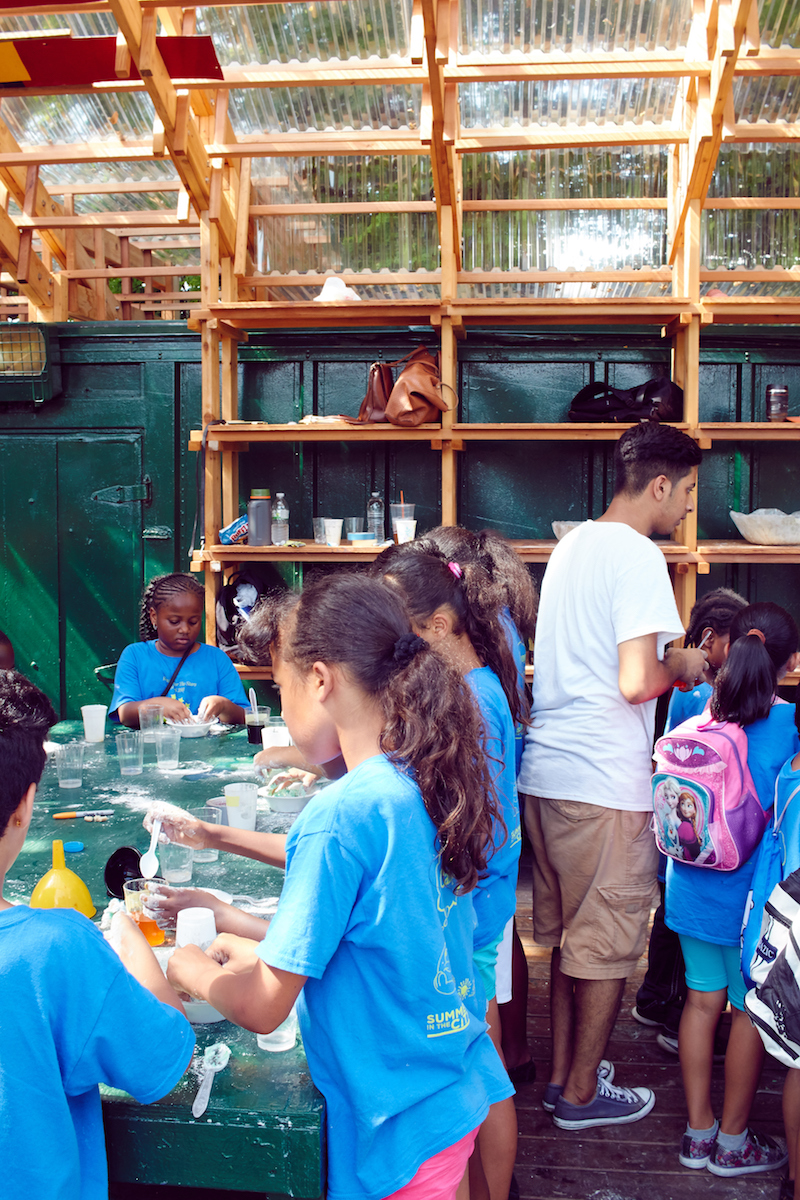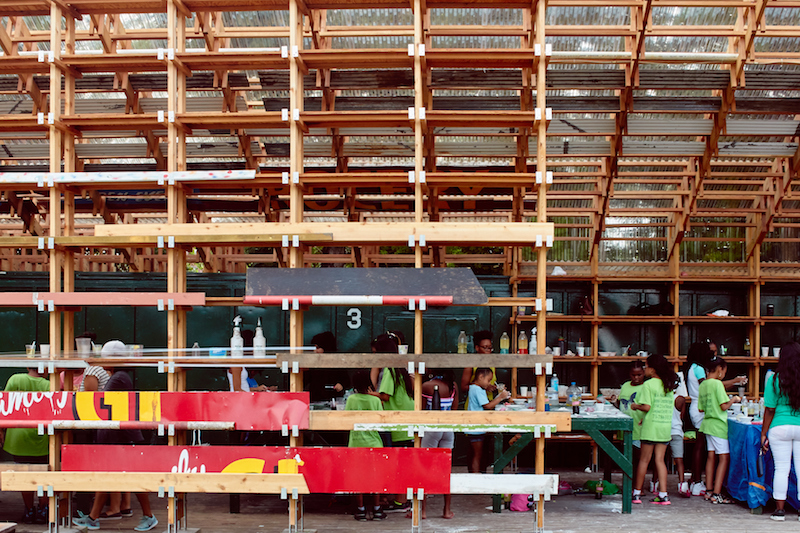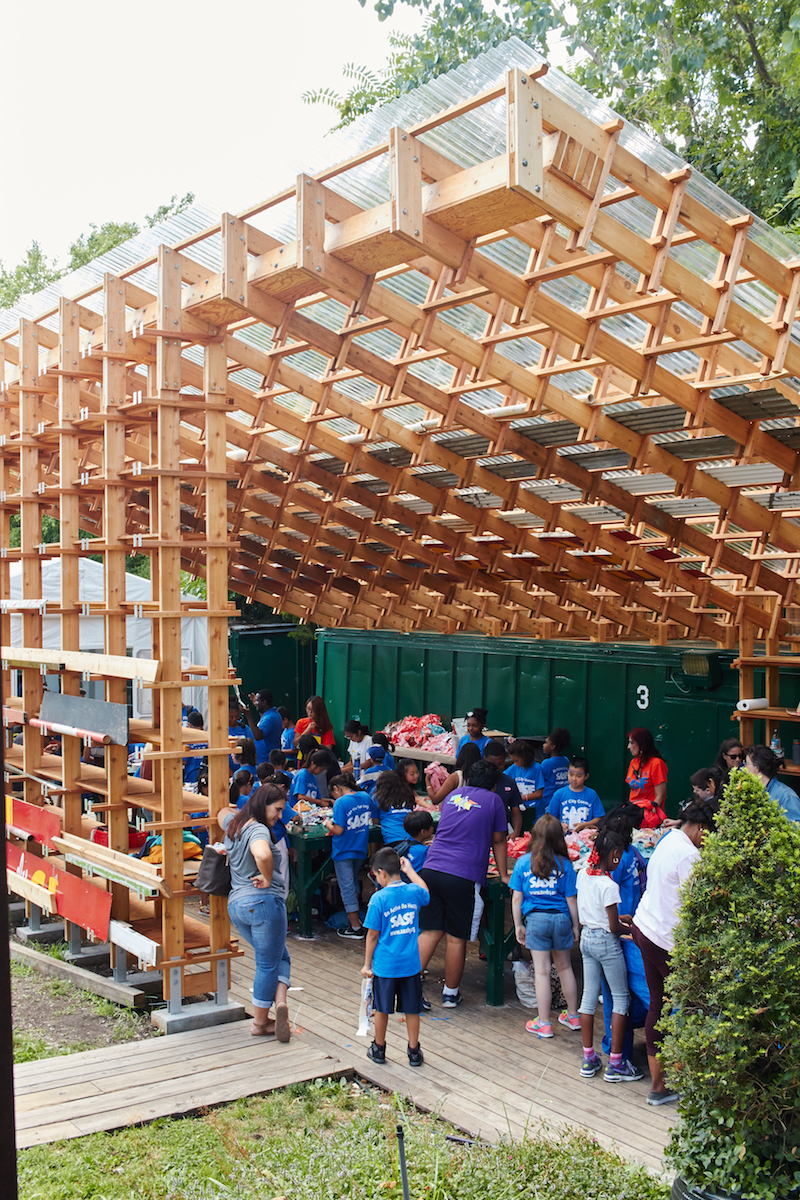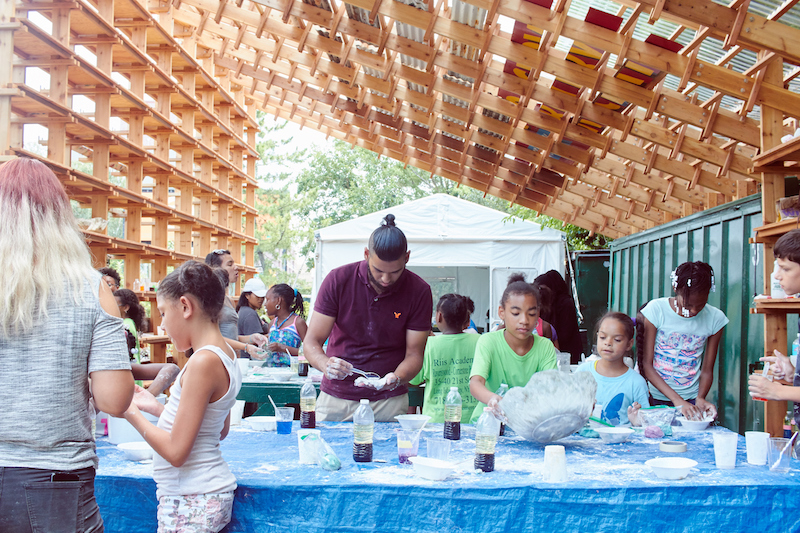5468796 architecture lecture
Johanna Hurme and Sasa Radulovic speak as part of the 2012 Emerging Voices lecture series.
August 14, 2016
Hou de Sousa | Sticks | New York | 2016 | Photograph courtesy of Socrates Sculpture Park
As the former Director of Public Programs at Socrates Sculpture Park, when I was first introduced to Hou de Sousa’s rendering of Sticks, I was especially interested in its permeability between inside and outside. With its open-gridded cedar walls comprising shelves, topped by a translucent roof, I could imagine the park’s flora and natural environs having a presence inside the space. And because Sticks would shelter arts education programming at Socrates Sculpture Park, I was also interested in its potential to integrate and elevate the presence of children engaged in art-making into the greater atmosphere and daily activity of the park. Furthermore, I was curious about how the formal design considerations of Sticks would translate into the actualization of the structure, the corresponding activation of the space, and the experiential implications for program participants.

Photograph courtesy of Socrates Sculpture Park
For those of us who work on site, the building of Sticks felt like more of an emergence than a construction, growing up from the earth among the grass, trees, and outdoor workspaces of Socrates. Each day it appeared to gradually and organically take form. As the shelter neared completion, the warmth of its cedar grid and sun-filtering roof all came together to establish and reveal a deeper, more meaningful presence in the park.

Photograph courtesy of Socrates Sculpture Park
On its inaugural day, more than a thousand children entered into and moved through Sticks. A team of teaching artists led kite-making workshops for our annual Kite Festival among several tables set up inside the structure with craft-making materials and supplies. As children and their families entered the shelter, something quite striking took place. In addition to circling the tables to begin making their kites, participants naturally and immediately gravitated to the open walls, creating and activating multiple levels of natural “tabletops.” Even the youngest and littlest of artists had a space in which to create.

Photograph courtesy of Socrates Sculpture Park
Sticks echoes the spirit of Socrates and has already begun to inspire our programs. Its design and purpose facilitate a relationship between the making that takes place within it and the natural environment it inhabits. More than 12,000 children will create sculpture inside Sticks each year, sparking imaginations and instilling a life-long love for art. The shelter’s profound expression of the park’s ethos serves to further elevate the work done within it and the wonder of this place.
Folly/Function is a competition co-sponsored by The Architectural League and Socrates Sculpture Park that invites emerging architects and designers to propose contemporary interpretations of the architectural folly.
Johanna Hurme and Sasa Radulovic speak as part of the 2012 Emerging Voices lecture series.
Kerry O’Connor writes about infrastructural public works by architect Jože Plečnik along two rivers in Ljubljana, Slovenia.
